Methanesulfonic acid,propyl ester

Methanesulfonic acid,propyl ester structure
|
Common Name | Methanesulfonic acid,propyl ester | ||
|---|---|---|---|---|
| CAS Number | 1912-31-8 | Molecular Weight | 138.18500 | |
| Density | 1.133g/cm3 | Boiling Point | 229.2ºC at 760mmHg | |
| Molecular Formula | C4H10O3S | Melting Point | N/A | |
| MSDS | N/A | Flash Point | 92.4ºC | |
| Name | Propyl Methanesulfonate |
|---|---|
| Synonym | More Synonyms |
| Density | 1.133g/cm3 |
|---|---|
| Boiling Point | 229.2ºC at 760mmHg |
| Molecular Formula | C4H10O3S |
| Molecular Weight | 138.18500 |
| Flash Point | 92.4ºC |
| Exact Mass | 138.03500 |
| PSA | 51.75000 |
| LogP | 1.45340 |
| Vapour Pressure | 0.106mmHg at 25°C |
| Index of Refraction | 1.423 |
|
Section I.Chemical Product and Company Identification Chemical Name Propyl Methanesulfonate Portland OR SynonymMethanesulfonic acid, propyl ester (CA INDEX NAME); Methanesulfonic Acid Propyl Ester Chemical FormulaC4H10O3S CAS Number1912-31-8
Section II.Composition and Information on Ingredients Toxicology Data Chemical NameCAS Number Percent (%)TLV/PEL 1912-31-8 Min. 98.0 (GC) Not available.Not available. Propyl Methanesulfonate Section III. Hazards Identification Acute Health EffectsHarmful if ingested or inhaled. Minimize exposure to this material. Severe overexposure can result in injury or death. Follow safe industrial hygiene practices and always wear proper protective equipment when handling this compound. Chronic Health EffectsCARCINOGENIC EFFECTS : Not available. MUTAGENIC EFFECTS : Not available. TERATOGENIC EFFECTS : Not available. DEVELOPMENTAL TOXICITY: Reproductive effects. Rat TDLo Intraperitoneal 400 mg/kg, male 1 day prior to mating Toxic Effects: Effects on Fertility - Male fertility index Mouse TDLo Intraperitoneal 600 mg/kg, female 1 day prior to mating Toxic Effects: Effects on Fertility - Litter size Repeated or prolonged exposure to this compound is not known to aggravate existing medical conditions. Section IV.First Aid Measures Check for and remove any contact lenses. In case of contact, immediately flush eyes with plenty of water for at least 15 Eye Contact minutes. Get medical attention. In case of contact, immediately flush skin with plenty of water. Remove contaminated clothing and shoes. Wash clothing Skin Contact before reuse. Thoroughly clean shoes before reuse. Get medical attention. InhalationIf the victim is not breathing, perform mouth-to-mouth resuscitation. Loosen tight clothing such as a collar, tie, belt or waistband. If breathing is difficult, oxygen can be administered. Seek medical attention if respiration problems do not improve. IngestionINDUCE VOMITING by sticking finger in throat. Lower the head so that the vomit will not reenter the mouth and throat. Loosen tight clothing such as a collar, tie, belt or waistband. If the victim is not breathing, perform mouth-to-mouth resuscitation. Examine the lips and mouth to ascertain whether the tissues are damaged, a possible indication that the toxic material was ingested; the absence of such signs, however, is not conclusive. Section V.Fire and Explosion Data Not available. May be combustible at high temperature.Auto-Ignition Flammability Flammable LimitsNot available. Flash PointsNot available. Combustion ProductsThese products are toxic carbon oxides (CO, CO2), sulfur oxides (SOx). Fire Hazards Not available. Risks of explosion of the product in presence of mechanical impact: Not available. Explosion Hazards Risks of explosion of the product in presence of static discharge: Not available. Fire Fighting Media SMALL FIRE: Use DRY chemical powder. LARGE FIRE: Use water spray, fog or foam. DO NOT use water jet. and Instructions Consult with local fire authorities before attempting large scale fire-fighting operations. Continued on Next Page Propyl Methanesulfonate Section VI.Accidental Release Measures Spill CleanupHarmful material. Possibly mutagenic material. Absorb with an inert material and put the spilled material in an appropriate waste disposal. Consult federal, state, and/or local Instructions authorities for assistance on disposal. Section VII. Handling and Storage Handling and StorageHARMFUL. POSSIBLE MUTAGEN. Keep away from heat. Mechanical exhaust required. When not in use, tightly seal the container and store in a dry, cool place. Avoid excessive heat and light. Do not breathe gas/fumes/ vapor/spray. Information Always store away from incompatible compounds such as oxidizing agents. Section VIII. Exposure Controls/Personal Protection Provide exhaust ventilation or other engineering controls to keep the airborne concentrations of vapors below their respective Engineering Controls threshold limit value. Ensure that eyewash station and safety shower is proximal to the work-station location. Splash goggles. Lab coat. Vapor respirator. Boots. Gloves. Suggested protective clothing might not be sufficient; consult a Personal Protection specialist BEFORE handling this product. Be sure to use a MSHA/NIOSH approved respirator or equivalent. Exposure LimitsNot available. Section IX. Physical and Chemical Properties Liquid. (Clear, colorless ~ light yellow.)Solubility Physical state @ 20°CNot available. 1.15 (water=1) Specific Gravity 138.19 Molecular WeightPartition CoefficientNot available. Boiling Point110°C (230°F) @ 20 mmHgVapor PressureNot available. Not available.Not available. Melting PointVapor Density 1.42VolatilityNot available. Refractive Index Not available. Critical TemperatureNot available.Odor ViscosityNot available.TasteNot available. Section X.Stability and Reactivity Data Stability This material is stable if stored under proper conditions. (See Section VII for instructions) Conditions of InstabilityAvoid excessive heat and light. Incompatibilities Reactive with oxidizing agents. Section XI. Toxicological Information PB2680000 RTECS Number Routes of ExposureEye Contact. Ingestion. Inhalation. Not available. Toxicity Data Chronic Toxic EffectsCARCINOGENIC EFFECTS : Not available. MUTAGENIC EFFECTS : Not available. TERATOGENIC EFFECTS : Not available. DEVELOPMENTAL TOXICITY: Reproductive effects. Rat TDLo Intraperitoneal 400 mg/kg, male 1 day prior to mating Toxic Effects: Effects on Fertility - Male fertility index Mouse TDLo Intraperitoneal 600 mg/kg, female 1 day prior to mating Toxic Effects: Effects on Fertility - Litter size Repeated or prolonged exposure to this compound is not known to aggravate existing medical conditions. Harmful if ingested or inhaled. Minimize exposure to this material. Severe overexposure can result in injury or death. Acute Toxic Effects Follow safe industrial hygiene practices and always wear proper protective equipment when handling this compound. Continued on Next Page Propyl Methanesulfonate Section XII.Ecological Information EcotoxicityNot available. Not available. Environmental Fate Section XIII. Disposal Considerations Recycle to process, if possible. Consult your local regional authorities. You may be able to dissolve or mix material with a Waste Disposal combustible solvent and burn in a chemical incinerator equipped with an afterburner and scrubber system. Observe all federal, state and local regulations when disposing of the substance. Section XIV. Transport Information DOT ClassificationNot a DOT controlled material (United States). Not applicable. PIN Number Proper Shipping NameNot applicable. Not applicable. Packing Group (PG) DOT Pictograms Section XV. Other Regulatory Information and Pictograms TSCA Chemical InventoryThis product is NOT on the EPA Toxic Substances Control Act (TSCA) inventory. The following notices are required by 40 CFR 720.36 (C) for those products not on the inventory list: (EPA) (i) These products are supplied solely for use in research and development by or under the supervision of a technically qualified individual as defined in 40 CFR 720.0 et sec. (ii) The health risks of these products have not been fully determined. Any information that is or becomes available will be supplied on an MSDS sheet. WHMIS ClassificationNot available. (Canada) EINECS Number (EEC) 217-619-9 EEC Risk StatementsR20/21/22- Harmful by inhalation, in contact with skin and if swallowed. R46- May cause heritable genetic damage. SECTION 16 - ADDITIONAL INFORMATION N/A |
CHEMICAL IDENTIFICATION
HEALTH HAZARD DATAACUTE TOXICITY DATA
MUTATION DATA
|
| HS Code | 2905199090 |
|---|
|
~98% 
Methanesulfonic... CAS#:1912-31-8 |
| Literature: PARADIGM THERAPEUTICS LTD. Patent: WO2007/582 A1, 2007 ; Location in patent: Page/Page column 68-69 ; WO 2007/000582 A1 |
|
~84% 
Methanesulfonic... CAS#:1912-31-8 |
| Literature: Movassagh, Barahman; Shokri, Salman Zeitschrift fur Naturforschung - Section B Journal of Chemical Sciences, 2005 , vol. 60, # 7 p. 763 - 765 |
|
~85% 
Methanesulfonic... CAS#:1912-31-8 |
| Literature: Movassagh, Barahman; Shokri, Salman Zeitschrift fur Naturforschung - Section B Journal of Chemical Sciences, 2005 , vol. 60, # 7 p. 763 - 765 |
|
~% 
Methanesulfonic... CAS#:1912-31-8
Detail
|
| Literature: Bratt, Mark O.; Taylor, Paul C. Journal of Organic Chemistry, 2003 , vol. 68, # 14 p. 5439 - 5444 |
| Precursor 6 | |
|---|---|
| DownStream 10 | |
| HS Code | 2905199090 |
|---|---|
| Summary | 2905199090. saturated monohydric alcohols. VAT:17.0%. Tax rebate rate:13.0%. . MFN tariff:5.5%. General tariff:30.0% |
| Propyl methanesulphonate |
| Methanesulfonic Acid Propyl Ester |
| n-propyl methanesulfonate |
| n-propyl methane sulphonate |
| propyl mesylate |
| EINECS 217-619-9 |
| methanesulfonic acid propyl ester |
| n-propyl mesylate |
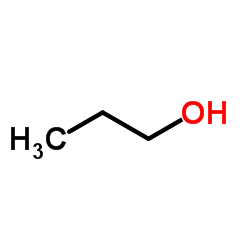
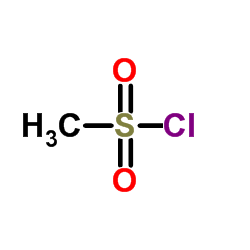

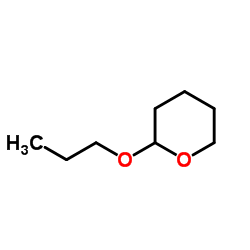

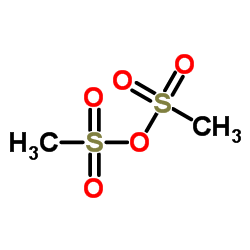
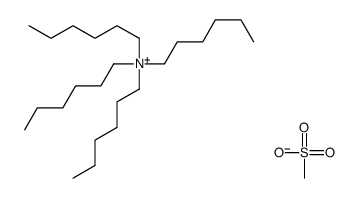 CAS#:105140-20-3
CAS#:105140-20-3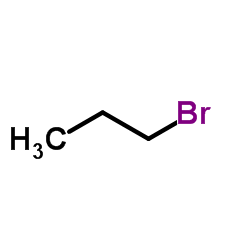 CAS#:106-94-5
CAS#:106-94-5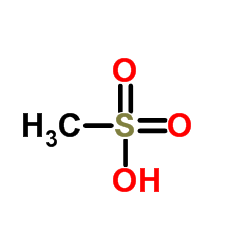 CAS#:75-75-2
CAS#:75-75-2 CAS#:187737-37-7
CAS#:187737-37-7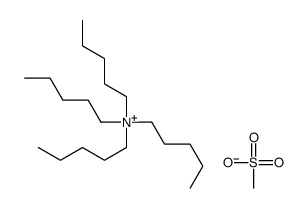 CAS#:113369-05-4
CAS#:113369-05-4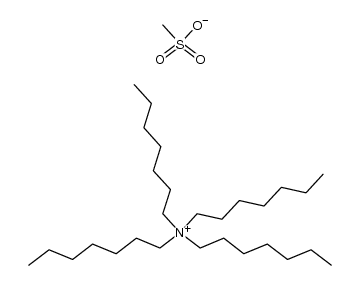 CAS#:113369-06-5
CAS#:113369-06-5 CAS#:98342-59-7
CAS#:98342-59-7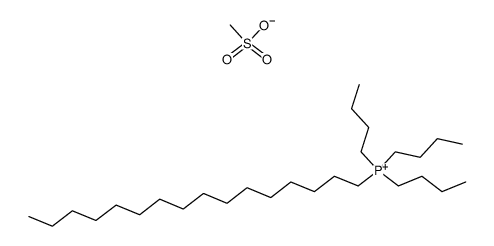 CAS#:86471-19-4
CAS#:86471-19-4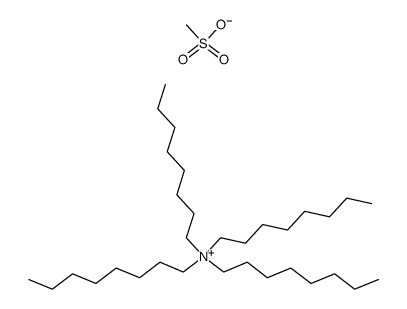 CAS#:70098-05-4
CAS#:70098-05-4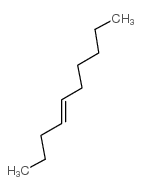 CAS#:19398-89-1
CAS#:19398-89-1